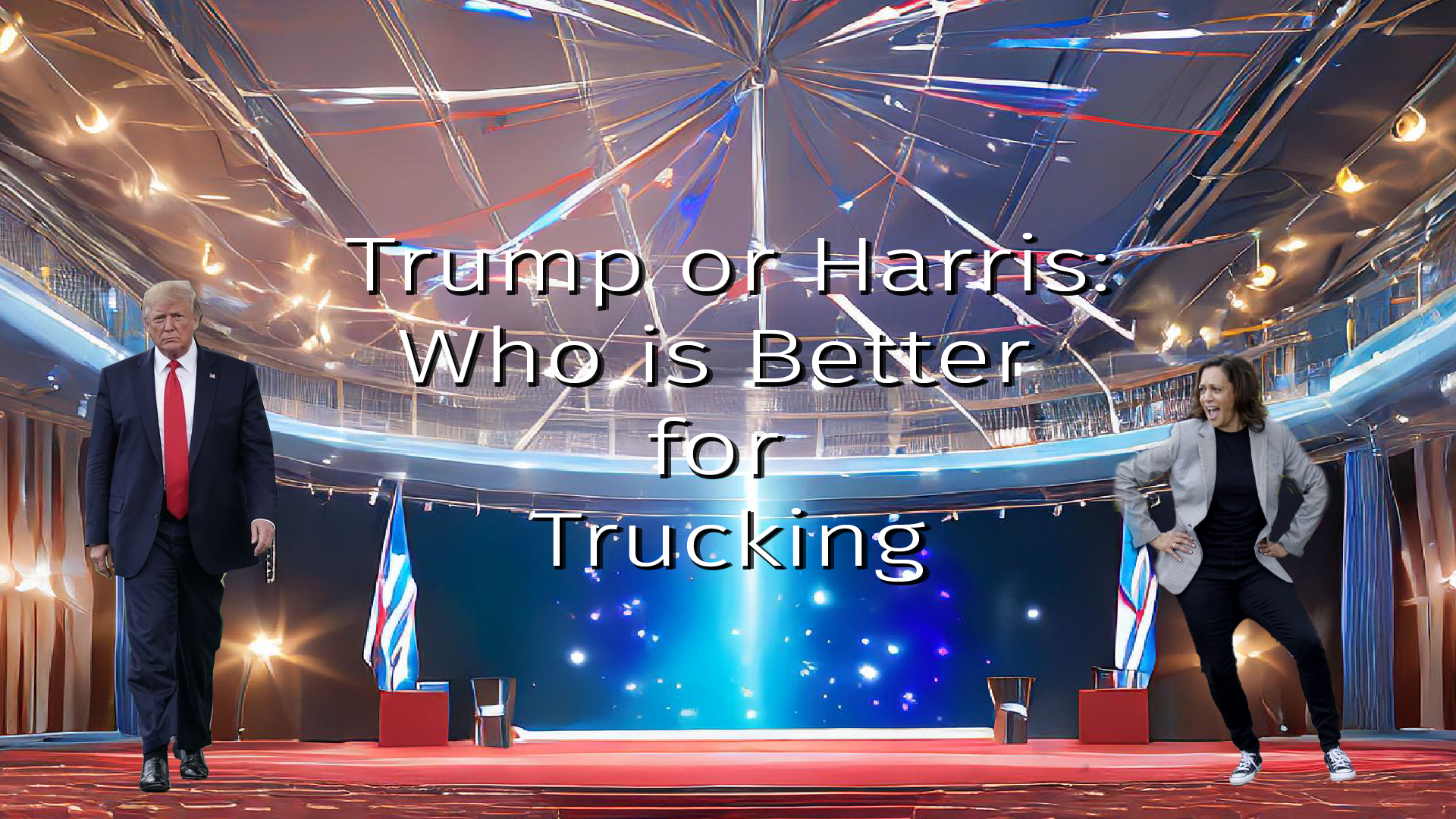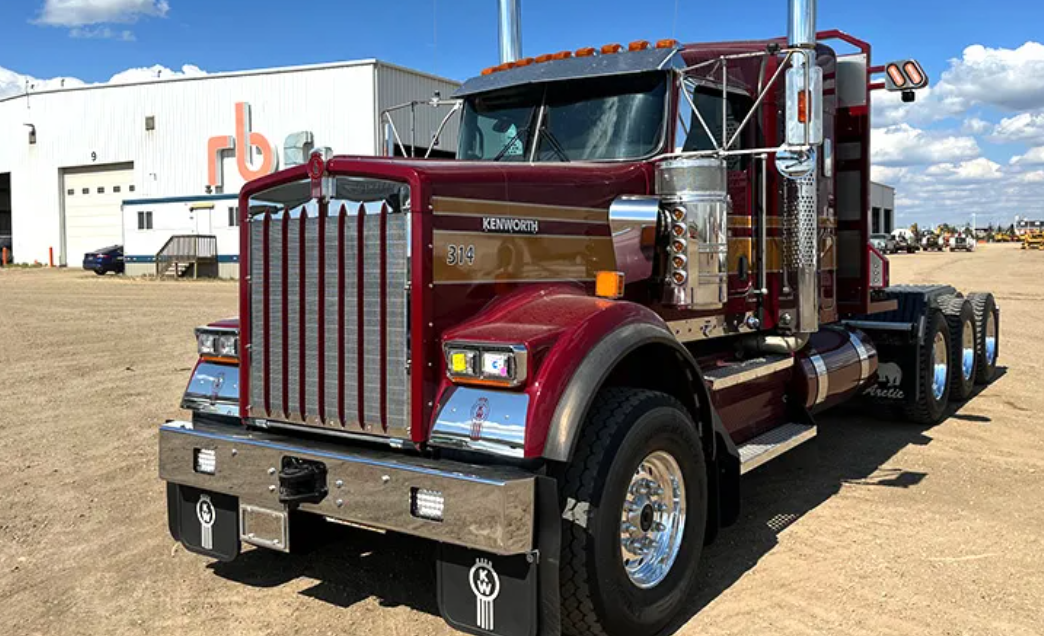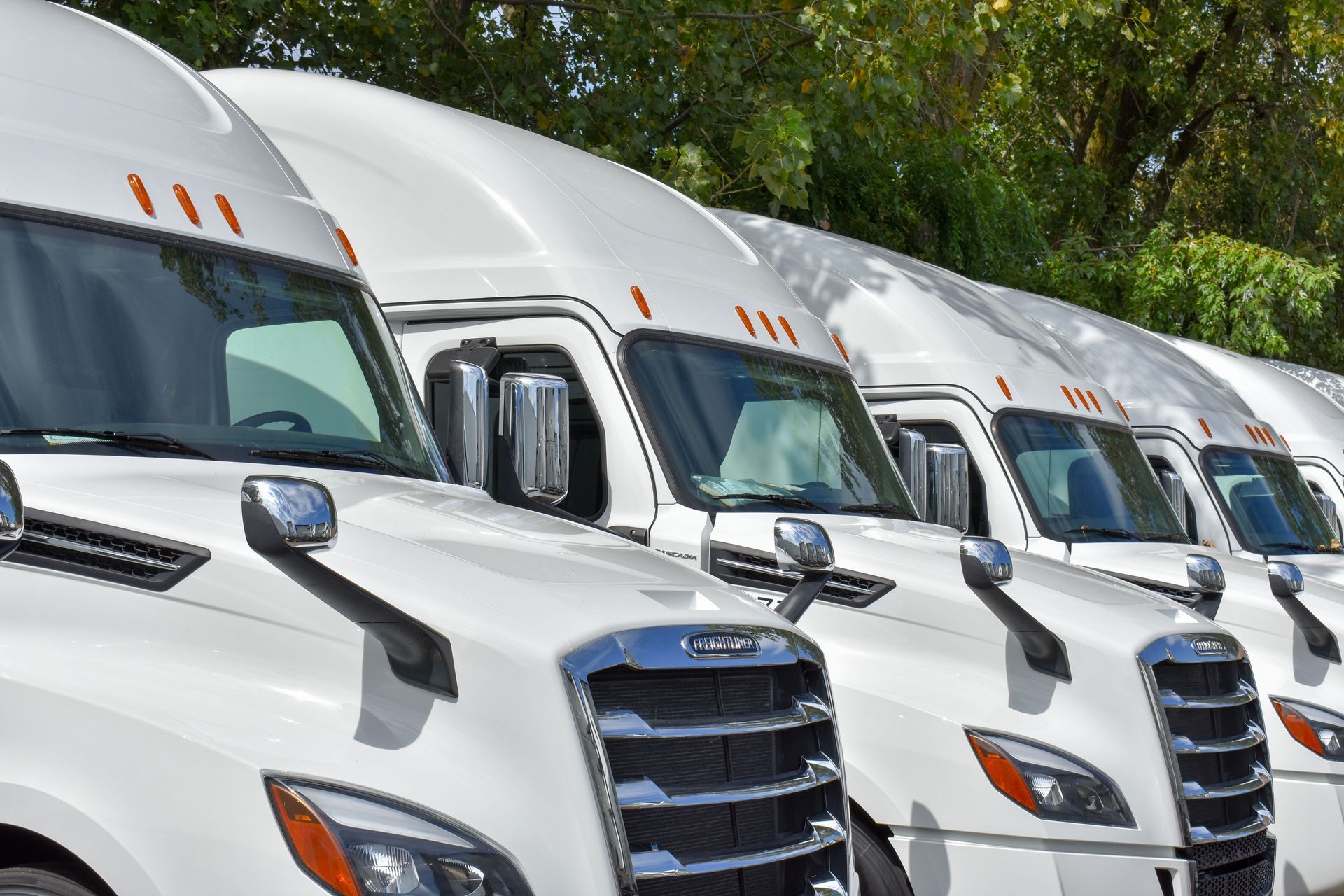Which candidate is better for Trucking?

The future of the trucking industry under a potential Kamala Harris or Donald Trump administration could be shaped by vastly different policies, approaches, and priorities. Both figures have represented contrasting political agendas, with Trump favoring deregulation and business-friendly policies, while Harris aligns with progressive stances on labor rights, environmental sustainability, and infrastructure investment. Using this dichotomy as a guide, this essay will explore how the trucking industry may evolve under each administration, focusing on issues like regulations, environmental standards, labor rights, and infrastructure investments.
Donald Trump: A Continuation of Deregulation and Business-Friendly Policies
If Donald Trump were to return as President, the trucking industry would likely see a resurgence of the policies from his first administration, with a strong focus on deregulation and reducing government oversight. Trump’s previous approach involved rolling back several trucking regulations that the industry viewed as overly restrictive. A key example is the loosening of the Hours of Service (HOS) rules, which allowed truckers more flexibility in their schedules. This provided benefits to drivers who found the previous regulations rigid and impractical for dealing with unpredictable conditions, such as traffic delays or bad weather.
Another major hallmark of Trump’s presidency was his “America First” trade policies, which included tariffs on goods from countries like China. While these tariffs were designed to protect domestic industries, they also disrupted supply chains, increasing costs for many trucking companies involved in the transportation of goods across borders. Under a second Trump administration, it’s likely that tariffs and trade wars would continue, potentially leading to volatility in the freight market. Truckers who rely on the transportation of imported goods may face fluctuating demand as trade relations remain uncertain.
However, Trump’s infrastructure policies were less developed than his deregulation initiatives. While he promised significant infrastructure investments, including highways, bridges, and roads critical for trucking, no large-scale infrastructure package was passed during his term. Many trucking companies struggled with deteriorating infrastructure, leading to higher maintenance costs and delivery delays. It remains uncertain whether Trump would prioritize such investments in a second term, but if history is any indication, infrastructure upgrades may not be a top focus.
In summary, a Trump administration would likely continue deregulation, providing immediate relief for trucking companies and owner-operators. However, without substantial investments in infrastructure and a volatile trade environment, long-term sustainability and growth in the industry could face challenges.
Kamala Harris: Prioritizing Sustainability, Labor Rights, and Infrastructure
Kamala Harris, on the other hand, represents a stark departure from Trump’s deregulation approach. As a key figure in the Biden-Harris administration, Harris has advocated for stronger environmental regulations, improved labor rights, and substantial infrastructure investment, all of which have profound implications for the trucking industry.
One of the cornerstones of the Harris administration would be the continued push toward sustainability. Under the Biden-Harris administration, policies such as the Clean Trucks Plan were introduced, which aim to drastically reduce greenhouse gas emissions from heavy-duty trucks. This plan encourages the adoption of electric or alternative fuel-powered trucks, with a long-term goal of achieving zero-emission fleets by 2045. A Harris presidency would likely accelerate this transition, increasing pressure on trucking companies to adopt greener technologies. While the environmental benefits of these policies are significant, the initial costs of transitioning from diesel to electric vehicles are high, especially for small trucking companies. However, federal incentives, tax credits, and investments in electric vehicle (EV) infrastructure would help mitigate these costs, ensuring that the industry can gradually adapt to more stringent emissions standards.
In addition to environmental policies, Harris is expected to focus on labor rights and worker protections. One of the major labor initiatives supported by the Biden-Harris administration is the Protecting the Right to Organize (PRO) Act, which aims to strengthen unions and provide workers with more bargaining power. For the trucking industry, where independent contractors (owner-operators) form a significant portion of the workforce, this could result in reclassifications of many drivers as employees, entitling them to benefits like health care and overtime pay. This would be a double-edged sword for the industry—while it improves the working conditions and benefits for drivers, it increases operational costs for trucking companies, particularly those that rely heavily on owner-operators.
A Harris administration would also build on the infrastructure investments initiated during the Biden presidency. The Infrastructure Investment and Jobs Act, signed into law in November 2021, earmarked $1.2 trillion for roads, bridges, and freight corridors. For the trucking industry, this is a critical development. Improved infrastructure would lead to better road conditions, reducing maintenance costs, and improving delivery times. Additionally, investments in ports and supply chain infrastructure could alleviate the bottlenecks that have plagued the industry, especially during the COVID-19 pandemic. A Harris presidency would likely continue this trajectory, making further investments in EV charging stations, facilitating the transition to greener fleets.
In contrast to a Trump presidency, Harris’s focus on sustainability, labor protections, and infrastructure investment would likely result in a more regulated but also more modern and resilient trucking industry. However, smaller trucking companies may struggle with the increased costs associated with transitioning to greener technologies and complying with stricter labor laws.
Comparing the Economic Impacts on Trucking
Both administrations present distinct visions for the future of trucking, each with unique economic impacts. Under a Trump administration, the emphasis on deregulation would provide immediate cost savings for trucking companies, particularly in terms of operational flexibility. Truckers could benefit from more lenient rules regarding hours of service, which allow for increased efficiency in long hauls. However, without major infrastructure improvements, these benefits may be overshadowed by higher vehicle maintenance costs and delivery delays caused by poor road conditions. Additionally, Trump’s trade policies could lead to market volatility, particularly for truckers involved in the transportation of imported goods.
On the other hand, a Harris administration would introduce policies that prioritize long-term sustainability and worker rights. The increased focus on electric vehicle adoption and clean energy infrastructure would modernize the industry, aligning it with global efforts to combat climate change. In the short term, however, the costs of compliance—whether through upgrading to electric fleets or adhering to new labor laws—could place financial strain on smaller operators. Harris’s policies, while progressive, may lead to increased regulatory complexity for trucking companies, requiring them to invest in both technology and workforce management to stay competitive.
The Future of Trucking Workforce
The workforce would also see stark contrasts between the two administrations. Under Trump, the independent contractor model would likely continue to thrive, giving truckers the flexibility to operate as freelancers, negotiate their own rates, and maintain autonomy. However, without strong worker protections, many truckers could face continued challenges with wage theft and lack of benefits, issues that have plagued the industry for years.
Conversely, Harris would likely expand worker protections, ensuring that drivers classified as employees receive benefits like health care, overtime pay, and union representation. The PRO Act would make unionization easier for truck drivers, potentially leading to higher wages and better working conditions, but also increasing labor costs for trucking companies.
Divergent Paths for the Industry
The trucking industry stands at a crossroads, with the future dependent on the policy direction set by the next administration. A Trump presidency would likely continue a path of deregulation, favoring business-friendly policies that offer short-term flexibility but may lack the infrastructure and environmental foresight necessary for long-term industry growth. Conversely, a Harris administration would focus on sustainability, worker protections, and infrastructure modernization, ensuring the industry is equipped to handle future challenges but at the potential cost of increased regulatory burdens for smaller trucking companies.
Ultimately, the success of the trucking industry will depend on how it navigates these opposing approaches, adapting to either a less regulated, business-first environment or a more regulated, sustainable, and worker-focused future.



office & Parking depot
5120 Belmont Rd Unit K, Downers Grove, IL 60515, USA
Hours of operation
Mon - Sun: 7am-5pm
